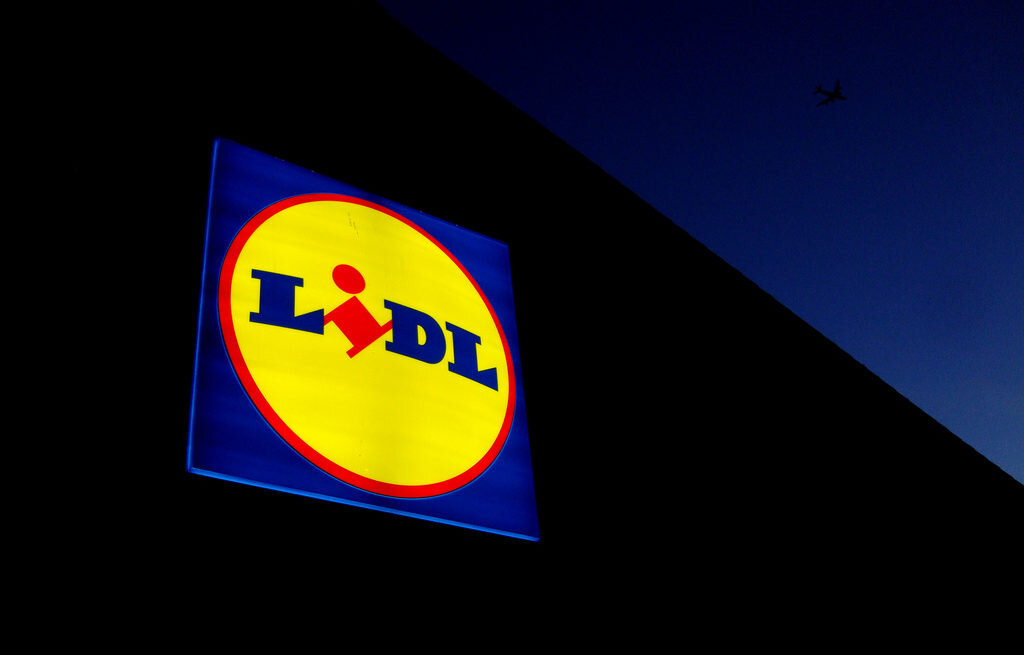European Chains Spur Further Grocery Consolidation, Squeezing Farmers, Workers, and Independent Businesses
Photo courtesy of J Mark Dodds via Flickr
Update, June 30th, 2020 – On June 10th, 2020 Stop & Shop and King Kullen terminated their merger agreement due to COVID-19 economic uncertainties.
European grocery chains are driving a new round of concentration in American food retail, as they race to buy up independent grocers or drive them out of business. In the most recent deal, Stop & Shop, a subsidiary of Dutch-based Ahold-Delhaize, announced it will acquire Long Island supermarket chain, King Kullen, America’s first-ever supermarket.
Traditionally-dominant conglomerates like Ahold-Delhaize feel pressure to acquire more stores due in part to price pressure from German discounters, Lidl and Aldi. These chains, which have grown rapidly across Europe over the past two decades, sell primarily private label products and offer less selection than traditional grocers to drive up purchasing volumes and lower prices. They also hire fewer workers per store on average, and unlike many of the chains they are driving out of business, they are not unionized.
“Chains like King Kullen and Delhaize are under siege and losing market share of unprecedented proportions to non-union food retailers, like Lidl,” says Burt Flickinger, a retail consultant for the New York-based Strategic Resource Group. “The only way they have a dim to decent hope of competing is to combine companies and even that doesn’t always work.”
Indeed, earlier this year another New York grocer, Tops, filed for bankruptcy after it was twice sold, once to Ahold and once to Morgan Stanley’s private equity team, deals that left the chain burdened with debt.
As grocers continue to close or consolidate, dominant retailers increase their buying power over suppliers, squeezing wages from farmers and food chain workers at the bottom of the food chain.
Ahold-Delhaize is itself the product of a series of mergers, most recently Ahold and Delhaize in 2016. The corporation dominates much of the East Coast market with brands including Stop & Shop, Giant, Peapod, Hannaford, and Food Lion. According to the grocery industry publication, Grocery Dive, Ahold-Delhaize has the first or second position in 95 percent of the markets where it operates.
In a recent interview, Frans Muller the CEO of Ahold-Delhaize said, “there will be more consolidation in the industry for smaller and midsize companies, and it gives us a nice opportunity to gain share, deepen our footprints and make our brands along the East Coast even bigger.”
Meanwhile, the two German discounters, Aldi and Lidl, continue to expand. Aldi plans to add 900 new stores on top of their 1,600 existing US locations, and Lidl hopes to open 500 new US stores. In fact, Lidl announced plans to acquire another Long Island grocery chain, Best Market, this past fall. Together, Aldi and Lidl account for 27 percent of the new or soon-to-open grocery stores in the US.
Another factor in the roll up of the grocery sector is Amazon’s acquisition of Whole Foods in 2017. That deal drove down stock prices for many leading retailers, as investors concluded that competition from Amazon would only increase in the years to come. “The Amazon acquisition puts more pressure on the combo of Delhaize-Stop and Shop and King Kullen,” says Flickinger. “Amazon has far more procurement power to continually lower prices.”
Farmers and workers are on the losing end of increasing grocery consolidation. Long Island farmers Philip Schmitt of Schmitt’s Family Farm and Edmund Densieski of Densieski Farms both sell produce to King Kullen and Stop and Shop. Both farmers said that sales with King Kullen had been declining in recent years and that it remains to be seen whether or not Stop and Shop will increase, maintain, or decrease King Kullen’s purchasing levels after they take over the stores.
Schmitt noted that across the grocery sector, large chains are putting more price pressure on local farms. “At the end of the day these different chain stores talk local but what they want is cheap,” Schmitt says. “One guy told me, y’know our customers, they want the local stuff … but Phil, you got to compete.”
“Well, [I] really can’t compete anymore,” Schmitt says, “and people don’t understand that.”
Increased buyer power also contributes to wage stagnation in industries like transportation and food manufacturing. Research by Nathan Wilmers found that when a supplier relies on only one or two corporations for a large portion of their revenue, the wages of its employees will tend to decline.
Grocery store workers also suffer from less negotiating power and benefits as non-union shops like Aldi, Lidl, Walmart, and Amazon-Whole Foods drive unionized stores out of business.
According to the Labor Department, membership in the largest grocery union, United Food and Commercial Workers, is down more than 9 percent since 2002. While part of this trend stems from right-to-work legislation and increased automation, some analysts argue that consolidation and store closures also play a role. According to research by Flickinger, “the massive failure of supermarket chains in New York state” has led to the loss of some 75,000 full-time unionized jobs, “with medical benefits and pension plans.”
What We're Reading
The Philadelphia Inquirer revealed how mushrooms grown from Chinese logs with Chinese substrate and Chinese spawn can be labeled product of the USA, so long as the mushrooms these components produce are harvested in the US. This loophole is shuttering US mushroom farms.
A new study in the Millbank Quarterly health journal exposes emails between Coca-Cola and the CDC in which the corporation tried to gain access to CDC staff and shift attention and blame away from sugar-sweetened beverages in public health debates.
Another report published by The Lancet outlined the role that influential food corporations have in furthering obesity, food insecurity, and climate change. Authors suggest that countries regulate Big Food much in the way we do Big Tobacco for the sake of public health and the environment.

